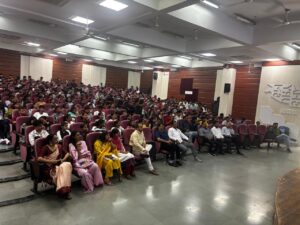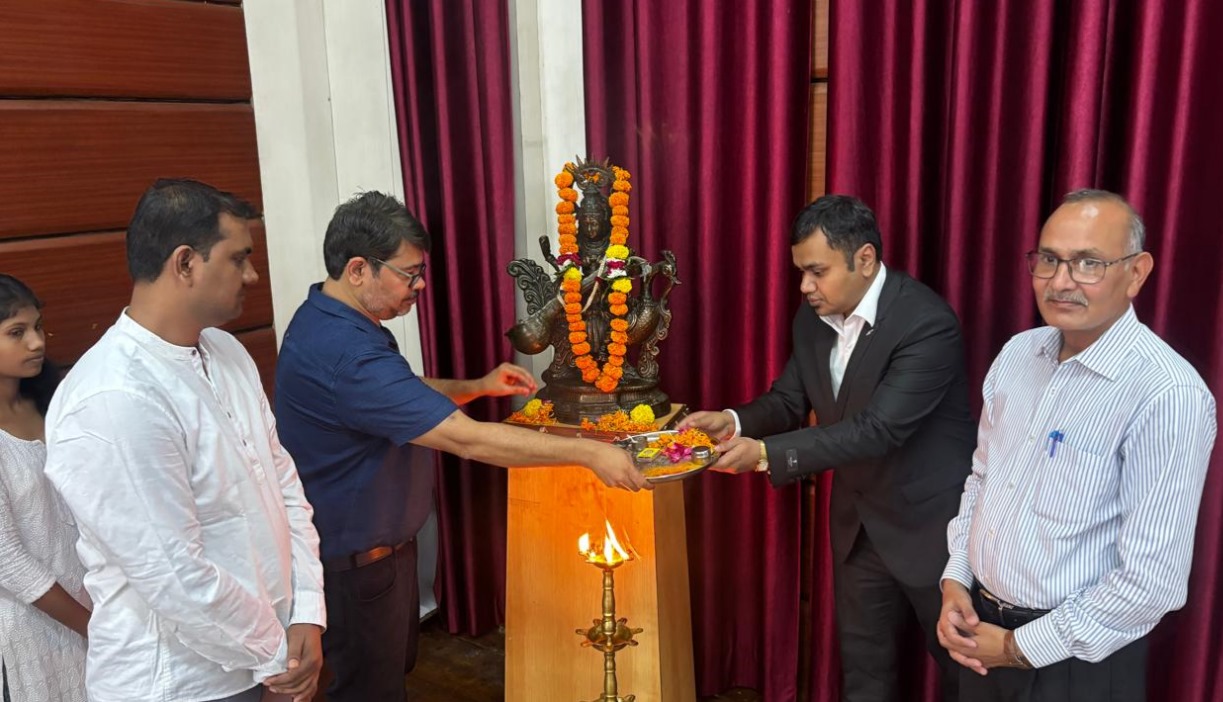CNN Central News & Network–ITDC India Epress/ITDC News Bhopal: In today’s era of modernity, IoT sensors and networks enable real-time monitoring of air pollution, water quality, noise pollution, temperature, and other environmental factors more effectively. Through data analysis, environmental problems can be predicted and addressed in advance.
This was emphasized by Director Shubhankar Majumdar, Assistant Professor in the Department of Electronics and Communication at NIT Meghalaya, during an expert lecture at Rajiv Gandhi Proudyogiki Vishwavidyalaya (RGPV), organized by the University Institute of Technology (UIT) on Friday. The lecture was jointly organized by the Departments of Computer Science and Engineering, Electronics and Communication, and the RGPV IEEE Student Branch.
Director Majumdar also highlighted the challenges and opportunities in this field. He encouraged students to stay aware of future technological trends and integrate emerging technologies like IoT with Artificial Intelligence (AI) and Machine Learning. He explained how the coordination of these technologies could be revolutionary in addressing environmental crises.

Director Shubhankar Majumdar, an alumnus of UIT RGPV, fondly recalled his days at the institute, mentioning how it laid a strong foundation for his technical career and inspired him to advance in the field.
The lecture drew deep interest from both students and faculty members, with many questions making it an interactive and informative session.
Advanced technologies like IoT are playing a crucial role not only in environmental monitoring but also in areas like disaster management. For instance, in disasters such as floods, IoT-based sensors and data systems allow for quick and effective responses, helping safeguard lives and property. Director Piyush Shukla, Coordinator and Associate Professor of the Department of Computer Science and Engineering, was also present at the event, along with University Registrar Mohan Sen, Manish Kumar Ahirwar, Head of CSE, Rajeev Pandey, Co-Coordinator Sanjay Sharma, Ranjit Joshi, and many other faculty members and around 300 students.







